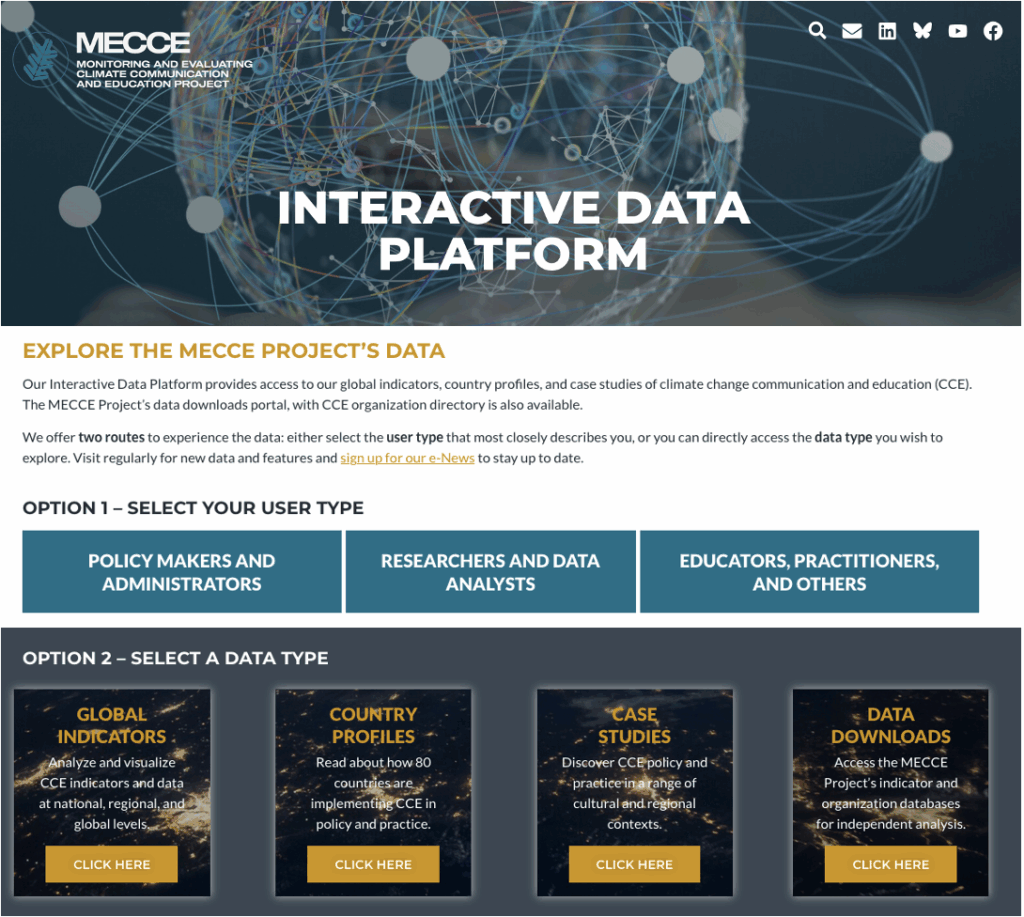New Funded Case Studies Final Reports Available
We are excited to announce that final reports from another round of funded case studies of quality CCE are now available! The case studies explore quality CCE approaches around the world–in schools in Iran and the United Kingdom, on Sri Lankan smallholder tea farms, on the land in a Canadian First Nation, across the Senegalese education and training system, and on trade unionists’ computers around the world. These case studies highlight the important role quality CCE plays in fostering hope, empowering locally-relevant climate action, building relationships with nature, supporting livelihoods, and taking policy action. Visit the interactive data platform to view summaries, reports, photos, and videos, or the digital library to read the reports.
Updated Interactive Data Platform
Our interactive data platform has new features! First, we now offer the ability to navigate the platform as a policy maker, researcher, or practitioner, with different functionalities to suit varied needs. When you select a user type, the website provides a recommendation about different features that may be of interest to you. The user interface of the global indicator analysis tool has also been simplified to be more user-friendly and a new ‘time series’ view allows users to explore changes in indicator data over time. Finally, MECCE Project data is now available for download through a new data downloads portal.
Watch Places, Communities, Stories: A case studies video
While there is no one-size-fits-all approach to quality climate communication and education (CCE), an analysis of a global series of MECCE Project case studies shows us there are shared characteristics. Learn more in our video.
Learn about The Project
Digital Library
Global CCE Blog

CCE Country Profiles
Created in partnership with UNESCO GEM Report, the country profiles provide insight on national CCE strategies, legal frameworks, budgets, and policy and programming. The profiles are validated by country experts, such as ACE Focal Points, and support policy coherence and peer learning through analysis of areas for policy prioritization to advance ACE progress. We have now published 80 Country Profiles of CCE in partnership with the UNESCO GEM Report. The countries covered represent all levels of climate vulnerability, income/development, and SDG regions. They are also home to 75% of the global population.
The detailed country profiles offer a comparative perspective of country progress on ACE and Sustainable Development Goal (SDG) Targets 4.7 and 13.3.
View the profiles on the MECCE Project’s website (below) and the GEM Report’s Profiles Enhancing Education Reviews (PEER) website.







